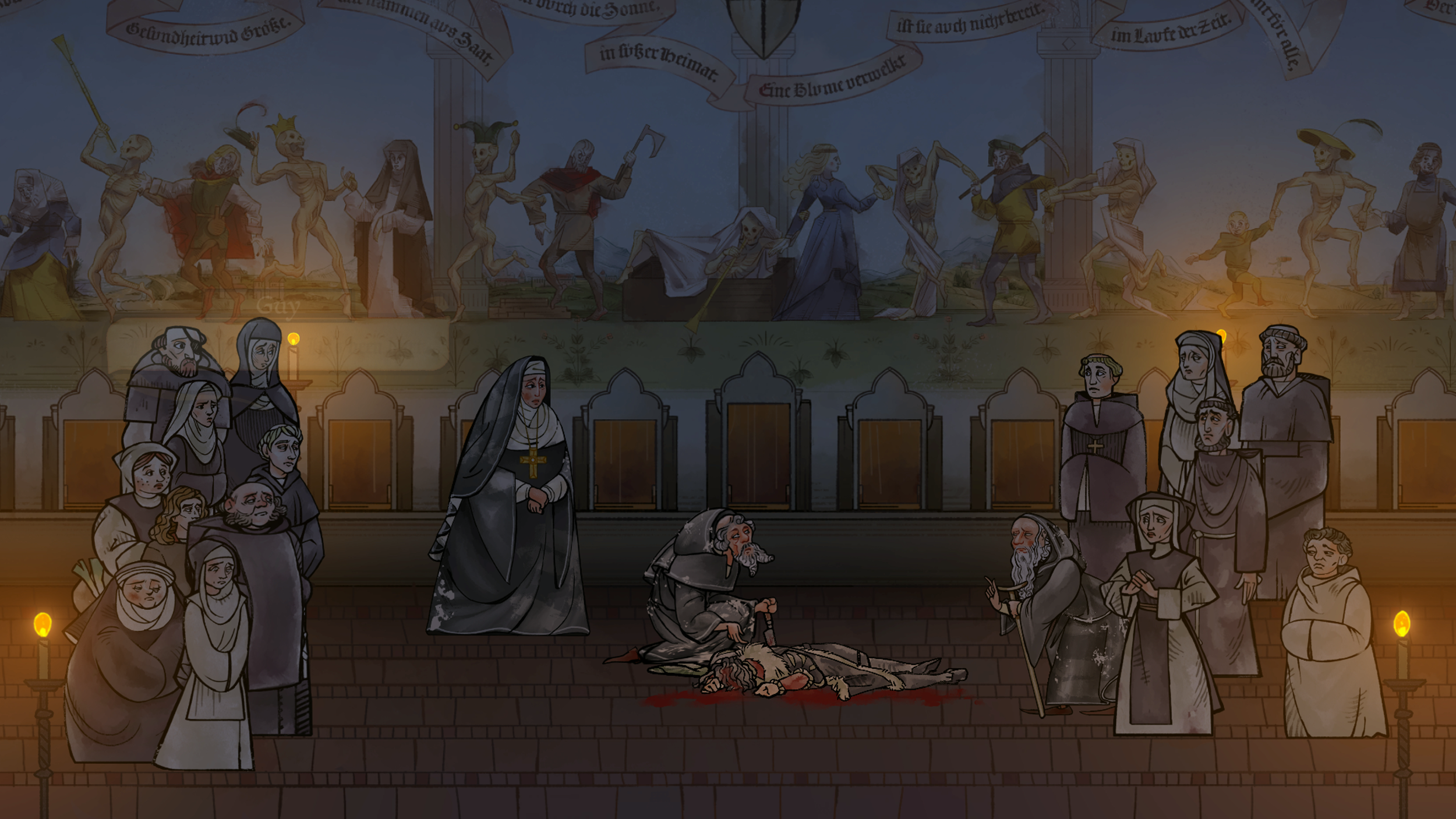Pentiment as Historical Fiction
Looking back to push forward
Early on in Pentiment your character, Andreas Maler, has a brief conversation with a visiting lord. During this discussion you are asked your opinion on Martin Luther and the Protestant Reformation. As a narrative adventure game, you are given three or four choices covering the range of opinions one might take on the issue. The game then responds to your selected stance with a ‘they will remember that’ notification popularized by the Telltale style of adventure game. It is in this moment, the game taking note of your stance on the Protestant Reformation that Pentiment truly reveals itself as the hardcore piece of historical fiction it really is.
Historical fiction is an interesting genre of storytelling. Often it feels a historical setting is being co-opted to make a work simply stand out from the crowd. This is a perfectly reasonable route to take – and one I appreciate as a causal history nerd – as the added flavor truly does make these stories more inherently compelling. A small subset of work goes beyond this basic implementation to truly embrace their setting and tie it into the fiction itself at a far deeper level. This tier of historical fiction is so rarely found in the medium of video games that even attempting it at all makes Pentiment noteworthy.
It's no secret that Umberto Eco’s The Name of the Rose was a direct inspiration – a pentimento itself – for Pentiment. Much like its later inspiration Eco’s work is unable to be divorced from its setting. However, it is in the expanded scope of Pentiment that I feel the game goes further than The Name of the Rose in exploring its historical basis. Pentiment takes place in the fictional town of Tassing, Bavaria during the 16th century and chronicles a series of murders both in the town and at a nearby abbey. The game’s ‘A’ plot is solving a murder mystery over 25 years, the ‘B’ plot is about the community of Tassing and how its people grow and change over time.
This style of narrative adventure gives the player ample opportunity to interact with, and directly influence, the lives of the villagers of Tassing. These interactions as one-off singletons are interesting but often not particularly lasting. It is when they are compounded over time – both in game years and time played – that one really comes to understand not only the characters themselves but also their place in the community. This to me is the sign of a truly great success in historical fiction. I don’t come away from Pentiment excited that I learned about the Swabian League or whatever – I come away excited that I understood at a fundamental level what would spark a peasant revolt.
This type of fundamental teaching feels aptly suited to the medium of video games – you spend a lot of time directly interacting with simulated worlds while playing video games after all. Yet very few games leverage this unique strength. The extensive bibliography in the Pentiment’s credits could certainly be a reason for this – heck, a bibliography section in a credits sequence at all is completely novel to me. Without a doubt I expect a substantial amount of development time and effort was spent researching and consulting to nail the historical setting as thoroughly as (I assume) Pentiment did. It is understandable that most developers would rightly expect their player base to not care that much about a historical setting and so history as a flavor is all we often get.
In bucking this trend Pentiment deserves to be championed. Without this period of religious upheaval backing the story the plot of Pentiment would not have worked. The game is its historical setting so deeply that the two are inseparable. Despite existing in a medium not known for such thorough historical settings Pentiment rises the ranks of historical fiction to stand alongside the greats of the genre.
You’ll be able to name every character and explain their role in the community.



